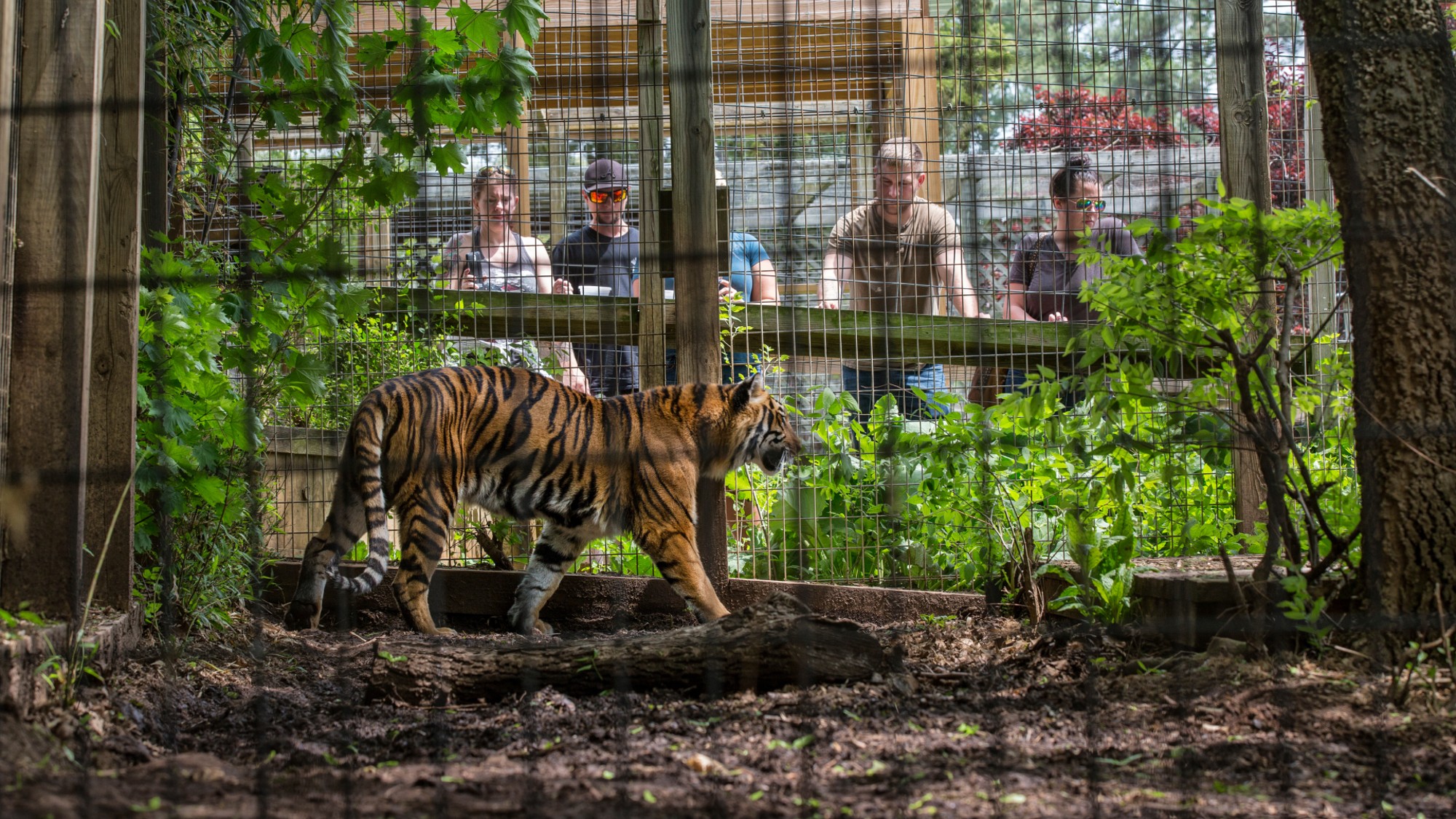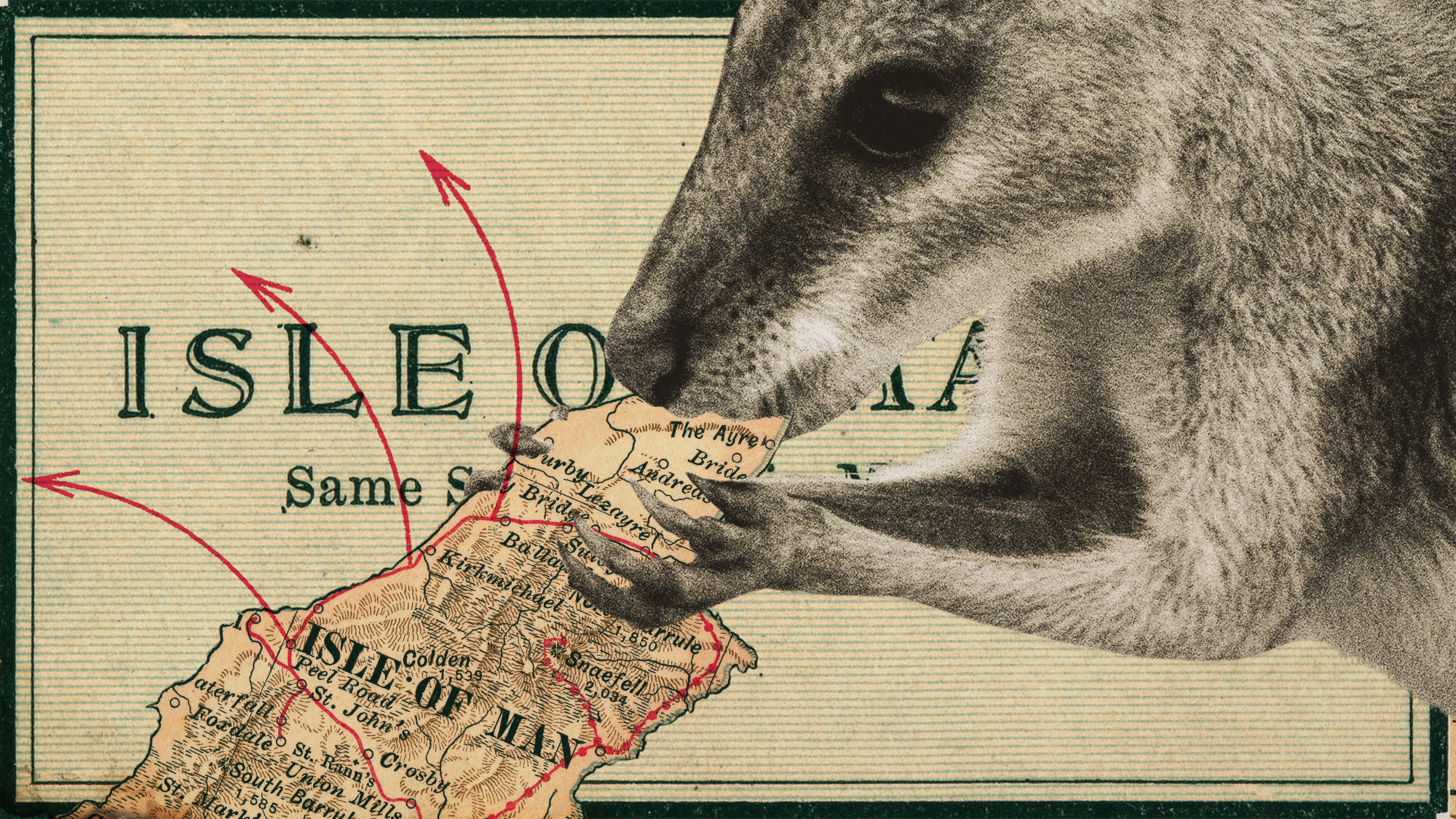A new investigation has put the spotlight on roadside zoos
Over 150 allegations against these zoos have been made over the past decade


A free daily email with the biggest news stories of the day – and the best features from TheWeek.com
You are now subscribed
Your newsletter sign-up was successful
The ethics of roadside zoos have long been debated among the wildlife community, and now a new investigation has thrust the concerns over these businesses back into the forefront. The investigation has uncovered allegations of injuries and near-fatal encounters going back years, many times involving large exotic animals kept in captivity.
The investigation, published by ABC News, found that many of these sanctuaries have faced allegations of dangerous environments, and even some lawsuits. Despite this, numerous roadside zoos remain operational in the United States, and the debate continues.
What is a roadside zoo?
They are "small menageries where wild animals like lions, tigers, monkeys, wolves, and others are kept in captivity," said the Animal Legal Defense Fund (ALDF). The animals in these facilities often don't even see other animals, as "many roadside zoos keep animals confined alone in their cages."
The Week
Escape your echo chamber. Get the facts behind the news, plus analysis from multiple perspectives.

Sign up for The Week's Free Newsletters
From our morning news briefing to a weekly Good News Newsletter, get the best of The Week delivered directly to your inbox.
From our morning news briefing to a weekly Good News Newsletter, get the best of The Week delivered directly to your inbox.
Oftentimes, roadside zoos also "encourage dangerous interactions between animals and visitors, such as bottle feeding tiger cubs," said the ALDF. This is how many of the allegations against these facilities have started.
What did the investigation uncover?
ABC's investigation concluded that there have been "at least 150 people over the past decade who have alleged they were injured during exotic animal encounters in the U.S." There are at least 900 facilities in the U.S. that allow visitors to interact with wild animals, and some of these places are "not accredited by the Association of Zoos & Aquariums and many have a bad track record in their treatment of animals."
The outlet highlighted several of these institutions where alleged wrongdoings have taken place. When it came to the animals, people were "encouraged to pet them" and "encouraged to go up to them," Dana Garber, who was allegedly injured by an elephant at the Endangered Ark Foundation in Hugo, Oklahoma, said in an ABC interview. Garber was "being squished and held very tightly, after the elephant grabbed me and kind of swung me and thrashed me to the ground," she said. The Endangered Ark Foundation has denied Garber's allegations and settled a lawsuit out of court.
Other locations noted by ABC include facilities that keep big cats such as tigers; this includes the Greater Wynnewood Exotic Animal Park, the subject of the 2020 Netflix series "Tiger King." This is a place where "wild animals were kept in barren cages, fed expired meat that grocery stores couldn't sell, and paraded before the public for profit," according to the Animal Welfare Institute.
A free daily email with the biggest news stories of the day – and the best features from TheWeek.com
ABC is not the first news outlet to investigate these types of facilities. This includes allegations against SeaQuest, a non-accredited chain where visitors can "handle flying squirrels, snorkel with stingrays or cavort with otters and wallabies," said The New York Times. But "whether the animals want that kind of communion is another question."
What next?
Legislation has been passed to curb roadside zoos. This includes the Big Cat Public Safety Act, which "prohibits public contact with big cats and the new breeding of cubs for private possession," said ABC. Other laws, such as the Endangered Species Act, also work to protect these animals.
And while roadside zoos allow personal interactions, accredited zoos "increasingly do not allow keepers to even be photographed with their [animals], lest the public perceive it as a good pet," said the Times. Instead of going to a roadside zoo, animal advocates "recommend doing so at locations accredited by the Association of Zoos & Aquariums," said ABC, a group "dedicated to the advancement of zoos and public aquariums."
Justin Klawans has worked as a staff writer at The Week since 2022. He began his career covering local news before joining Newsweek as a breaking news reporter, where he wrote about politics, national and global affairs, business, crime, sports, film, television and other news. Justin has also freelanced for outlets including Collider and United Press International.
-
 Local elections 2026: where are they and who is expected to win?
Local elections 2026: where are they and who is expected to win?The Explainer Labour is braced for heavy losses and U-turn on postponing some council elections hasn’t helped the party’s prospects
-
 6 of the world’s most accessible destinations
6 of the world’s most accessible destinationsThe Week Recommends Experience all of Berlin, Singapore and Sydney
-
 How the FCC’s ‘equal time’ rule works
How the FCC’s ‘equal time’ rule worksIn the Spotlight The law is at the heart of the Colbert-CBS conflict
-
 The environmental cost of GLP-1s
The environmental cost of GLP-1sThe explainer Producing the drugs is a dirty process
-
 Climate change could lead to a reptile ‘sexpocalypse’
Climate change could lead to a reptile ‘sexpocalypse’Under the radar The gender gap has hit the animal kingdom
-
 Why scientists want to create self-fertilizing crops
Why scientists want to create self-fertilizing cropsUnder the radar Nutrients without the negatives
-
 How drones detected a deadly threat to Arctic whales
How drones detected a deadly threat to Arctic whalesUnder the radar Monitoring the sea in the air
-
 ‘Jumping genes’: how polar bears are rewiring their DNA to survive the warming Arctic
‘Jumping genes’: how polar bears are rewiring their DNA to survive the warming ArcticUnder the radar The species is adapting to warmer temperatures
-
 How will climate change affect the UK?
How will climate change affect the UK?The Explainer Met Office projections show the UK getting substantially warmer and wetter – with more extreme weather events
-
 The UK’s surprising ‘wallaby boom’
The UK’s surprising ‘wallaby boom’Under the Radar The Australian marsupial has ‘colonised’ the Isle of Man and is now making regular appearances on the UK mainland
-
 The Southern Ocean is holding in a ‘burp’
The Southern Ocean is holding in a ‘burp’Under the radar The heat from the past can affect the future
